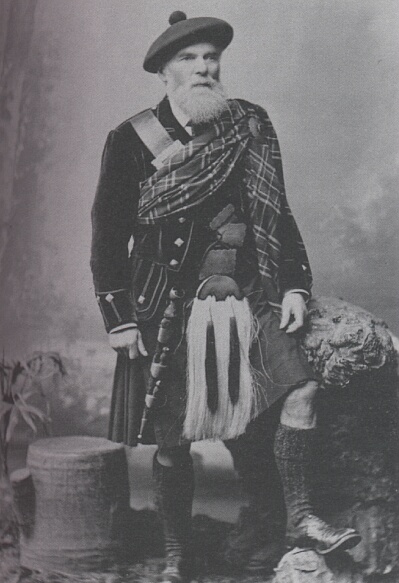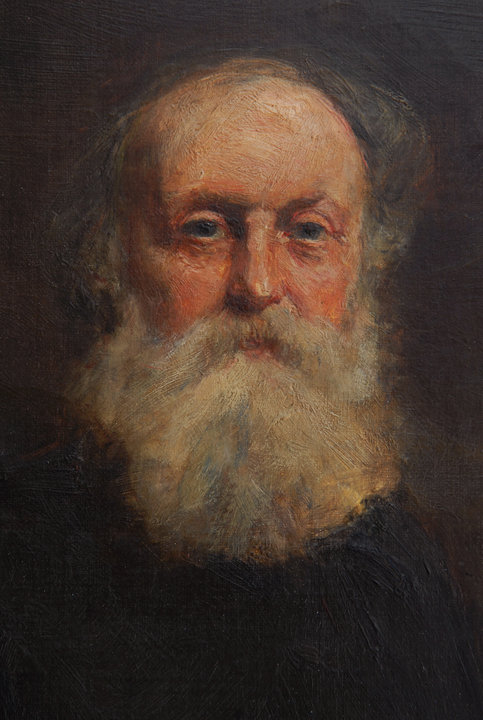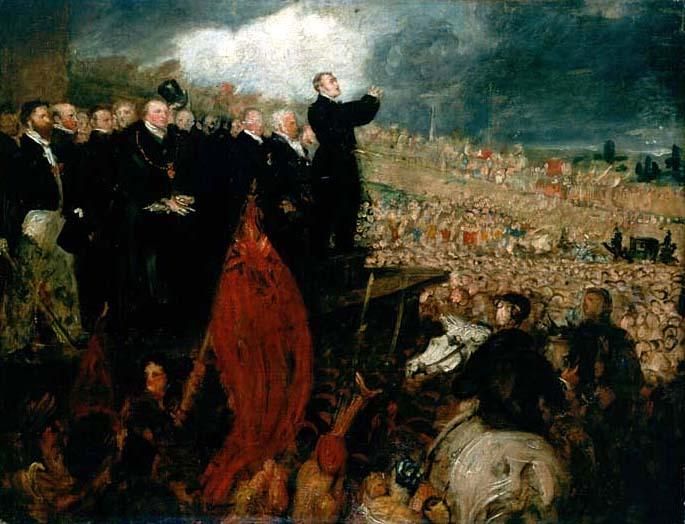|
John Murdoch (editor)
John Murdoch ( gd, Iain MacMhuirich) (15 January 1818 – 29 January 1903) was a Scottish newspaper owner and editor and land reform campaigner who played a significant part in the campaign for crofters rights in the late 19th century Early life Murdoch was born in Ardclach, Nairn. His father was John Murdoch and his mother was Mary Macpherson, the daughter of a sea captain. In 1827 the family moved to the island of Islay and Murdoch lived there until 1838, when he moved to work in a grocer's shop in Paisley. Shortly afterwards he joined the Excise service, completing his training in Edinburgh. He served as an exciseman in Kilsyth, Lancashire and Ireland. He retired to Inverness and from 1873 until 1881 ran the campaigning newspaper, ''The Highlander''. In his youth in Islay, Murdoch associated with the family of the laird, Walter Frederick Campbell, including his son, the famous Gaelic folklorist and literary scholar, Iain Òg Ile (1822–85). The laird's refusal to evict ... [...More Info...] [...Related Items...] OR: [Wikipedia] [Google] [Baidu] |
Murdoch
Murdoch ( , ) is an Irish/Scottish given name, as well as a surname. The name is derived from old Gaelic words ''mur'', meaning "sea" and ''murchadh'', meaning "sea warrior". The following is a list of notable people or entities with the name. Given name * Muireadhach I, Earl of Menteith, Scottish nobleman * Muireadhach II, Earl of Menteith, Scottish nobleman * Muireadhach III, Earl of Menteith, Scottish nobleman * Murdoch Stewart, Duke of Albany, Scottish nobleman * Murdoch Macdonald, British politician and civil engineer * Murdoch MacLennan (born 1949), British media executive Surname * Alexi Murdoch, Scottish-born singer * Alister Murdoch, Australian air marshal * Beamish Murdoch, judge and historian of Nova Scotia * Ben Murdoch-Masila, New Zealand Rugby League player * Billy Murdoch, Australian cricketer * Billy Murdoch (Scottish footballer) * Bobby Murdoch, Scottish footballer * Blair Murdoch, Canadian television producer * Bradley John Murdoch, Australian murdere ... [...More Info...] [...Related Items...] OR: [Wikipedia] [Google] [Baidu] |
Language Revival
Language revitalization, also referred to as language revival or reversing language shift, is an attempt to halt or reverse the decline of a language or to revive an extinct one. Those involved can include linguists, cultural or community groups, or governments. Some argue for a distinction between language revival (the resurrection of an extinct language with no existing native speakers) and language revitalization (the rescue of a "dying" language). There has only been one successful instance of a complete language revival, the Hebrew language, creating a new generation of native speakers without any pre-existing native speakers as a model. Languages targeted for language revitalization include those whose use and prominence is severely limited. Sometimes various tactics of language revitalization can even be used to try to revive extinct languages. Though the goals of language revitalization vary greatly from case to case, they typically involve attempting to expand the number ... [...More Info...] [...Related Items...] OR: [Wikipedia] [Google] [Baidu] |
Alexander Carmichael
Alexander Carmichael (full name Alexander Archibald Carmichael or Alasdair Gilleasbaig MacGilleMhìcheil in his native Scottish Gaelic; 1 December 1832, Taylochan, Isle of Lismore – 6 June 1912, Barnton, Edinburgh) was a Scottish exciseman, folklorist, antiquarian, and author. Between 1860 and his death Carmichael collected a vast amount of folklore, local traditions, natural history observations, antiquarian data, and material objects from people throughout the Scottish Highlands, particularly in the southern Outer Hebrides where he lived, worked, and brought up his family between 1864 and 1882. Alexander Carmichael is best known today for ''Carmina Gadelica'', an influential but controversial compendium of edited Highland lore and literature published in six volumes between 1900 and 1971. Career The material that Carmichael collected in the Carmina Gadelica - "The Hymns of the Gael" - is noted for its preservation of an indigenous "Celtic" spirituality that integrates ... [...More Info...] [...Related Items...] OR: [Wikipedia] [Google] [Baidu] |
Land War
The Land War ( ga, Cogadh na Talún) was a period of agrarian agitation in rural Ireland (then wholly part of the United Kingdom) that began in 1879. It may refer specifically to the first and most intense period of agitation between 1879 and 1882, or include later outbreaks of agitation that periodically reignited until 1923, especially the 1886–1891 Plan of Campaign and the 1906–1909 Ranch War. The agitation was led by the Irish National Land League and its successors, the Irish National League and the United Irish League, and aimed to secure fair rent, free sale, and fixity of tenure for tenant farmers and ultimately peasant proprietorship of the land they worked. From 1870, various governments introduced a series of Land Acts that granted many of the activists' demands. William O'Brien played a leading role in the 1902 Land Conference to pave the way for the most advanced social legislation in Ireland since the Union, the Land Purchase (Ireland) Act 1903. This Act set t ... [...More Info...] [...Related Items...] OR: [Wikipedia] [Google] [Baidu] |
Land Plan
The National Land Company was founded as the Chartist Cooperative Land Company in 1845 by the chartist Feargus O'Connor to help working-class people satisfy the landholding requirement to gain a vote in county seats in Great Britain. It was wound up by Act of Parliament by 1851. Chartism The Reform Act of 1832 extended the franchise. In county constituencies in addition to forty shilling freeholders franchise rights were extended to owners of land in copyhold worth £10 and holders of long-term leases (more than sixty years) on land worth £10 and holders of medium-term leases (between twenty and sixty years) on land worth £50 and to tenants-at-will paying an annual rent of £50. The chartists had, as one of their objectives, the enfranchisement of the working man. O'Connor focussed his energies on enabling working-class people to satisfy the landholding requirement to gain a vote in county seats. In his single minded pursuit of this objective he diverged from the mainstrea ... [...More Info...] [...Related Items...] OR: [Wikipedia] [Google] [Baidu] |
Irish Nationalism
Irish nationalism is a nationalist political movement which, in its broadest sense, asserts that the people of Ireland should govern Ireland as a sovereign state. Since the mid-19th century, Irish nationalism has largely taken the form of cultural nationalism based on the principles of national self-determination and popular sovereignty.Sa'adah 2003, 17–20.Smith 1999, 30. Irish nationalists during the 18th, 19th, and 20th centuries such as the United Irishmen in the 1790s, Young Irelanders in the 1840s, the Fenian Brotherhood during the 1880s, Fianna Fáil in the 1920s, and Sinn Féin styled themselves in various ways after French left-wing radicalism and republicanism. Irish nationalism celebrates the culture of Ireland, especially the Irish language, literature, music, and sports. It grew more potent during the period in which all of Ireland was part of the United Kingdom, which led to most of the island gaining independence from the UK in 1922. Irish nationalists believ ... [...More Info...] [...Related Items...] OR: [Wikipedia] [Google] [Baidu] |
Dublin
Dublin (; , or ) is the capital and largest city of Republic of Ireland, Ireland. On a bay at the mouth of the River Liffey, it is in the Provinces of Ireland, province of Leinster, bordered on the south by the Dublin Mountains, a part of the Wicklow Mountains range. At the 2016 census of Ireland, 2016 census it had a population of 1,173,179, while the preliminary results of the 2022 census of Ireland, 2022 census recorded that County Dublin as a whole had a population of 1,450,701, and that the population of the Greater Dublin Area was over 2 million, or roughly 40% of the Republic of Ireland's total population. A settlement was established in the area by the Gaels during or before the 7th century, followed by the Vikings. As the Kings of Dublin, Kingdom of Dublin grew, it became Ireland's principal settlement by the 12th century Anglo-Norman invasion of Ireland. The city expanded rapidly from the 17th century and was briefly the second largest in the British Empire and sixt ... [...More Info...] [...Related Items...] OR: [Wikipedia] [Google] [Baidu] |
Industrialist
A business magnate, also known as a tycoon, is a person who has achieved immense wealth through the ownership of multiple lines of enterprise. The term characteristically refers to a powerful entrepreneur or investor who controls, through personal enterprise ownership or a dominant shareholding position, a firm or industry whose goods or services are widely consumed. Such individuals have been known by different terms throughout history, such as industrialists, robber barons, captains of industry, czars, moguls, oligarchs, plutocrats, or taipans. Etymology The term '' magnate'' derives from the Latin word ''magnates'' (plural of ''magnas''), meaning "great man" or "great nobleman". The term ''mogul'' is an English corruption of ''mughal'', Persian or Arabic for "Mongol". It alludes to emperors of the Mughal Empire in Medieval India, who possessed great power and storied riches capable of producing wonders of opulence such as the Taj Mahal. The term ''tycoon'' derives from ... [...More Info...] [...Related Items...] OR: [Wikipedia] [Google] [Baidu] |
Anglo-Irish
Anglo-Irish people () denotes an ethnic, social and religious grouping who are mostly the descendants and successors of the English Protestant Ascendancy in Ireland. They mostly belong to the Anglican Church of Ireland, which was the established church of Ireland until 1871, or to a lesser extent one of the English dissenting churches, such as the Methodist church, though some were Roman Catholics. They often defined themselves as simply "British", and less frequently "Anglo-Irish", "Irish" or "English". Many became eminent as administrators in the British Empire and as senior army and naval officers since Kingdom of England and Great Britain were in a real union with the Kingdom of Ireland until 1800, before politically uniting into the United Kingdom of Great Britain and Ireland) for over a century. The term is not usually applied to Presbyterians in the province of Ulster, whose ancestry is mostly Lowland Scottish, rather than English or Irish, and who are sometimes id ... [...More Info...] [...Related Items...] OR: [Wikipedia] [Google] [Baidu] |
Feargus O'Connor
Feargus Edward O'Connor (18 July 1796 – 30 August 1855) was an Irish Chartist leader and advocate of the Land Plan, which sought to provide smallholdings for the labouring classes. A highly charismatic figure, O'Connor was admired for his energy and oratory, but was criticised for alleged egotism. His newspaper '' Northern Star'' (1837–1852) was widely read among workers (and read aloud in taverns), becoming the voice of the Chartist movement. After the failure of his Land Plan, O'Connor's behaviour became increasingly erratic, culminating in an assault on three MPs and a mental breakdown, from which he did not recover. After his death three years later at the age of 59, 40,000 people witnessed the funeral procession. Early life Feargus O'Connor was born on 18 July 1796 in Connorville house, near Castletown-Kinneigh in west County Cork, into a prominent Irish Protestant family. He was originally christened Edward Bowen O'Connor, but his father chose to call him Feargu ... [...More Info...] [...Related Items...] OR: [Wikipedia] [Google] [Baidu] |
Chartism
Chartism was a working-class movement for political reform in the United Kingdom that erupted from 1838 to 1857 and was strongest in 1839, 1842 and 1848. It took its name from the People's Charter of 1838 and was a national protest movement, with particular strongholds of support in Northern England, the East Midlands, the Staffordshire Potteries, the Black Country, and the South Wales Valleys. The movement was fiercely opposed by government authorities who finally suppressed it. Support for the movement was at its highest when petitions signed by millions of working people were presented to the House of Commons. The strategy employed was to use the scale of support which these petitions and the accompanying mass meetings demonstrated to put pressure on politicians to concede manhood suffrage. Chartism thus relied on constitutional methods to secure its aims, though some became involved in insurrectionary activities, notably in South Wales and in Yorkshire. The People's Chart ... [...More Info...] [...Related Items...] OR: [Wikipedia] [Google] [Baidu] |
Ulster
Ulster (; ga, Ulaidh or ''Cúige Uladh'' ; sco, label= Ulster Scots, Ulstèr or ''Ulster'') is one of the four traditional Irish provinces. It is made up of nine counties: six of these constitute Northern Ireland (a part of the United Kingdom); the remaining three are in the Republic of Ireland. It is the second-largest (after Munster) and second-most populous (after Leinster) of Ireland's four traditional provinces, with Belfast being its biggest city. Unlike the other provinces, Ulster has a high percentage of Protestants, making up almost half of its population. English is the main language and Ulster English the main dialect. A minority also speak Irish, and there are Gaeltachtaí (Irish-speaking regions) in southern County Londonderry, the Gaeltacht Quarter, Belfast, and in County Donegal; collectively, these three regions are home to a quarter of the total Gaeltacht population of Ireland. Ulster-Scots is also spoken. Lough Neagh, in the east, is the largest lake i ... [...More Info...] [...Related Items...] OR: [Wikipedia] [Google] [Baidu] |




.jpg)


